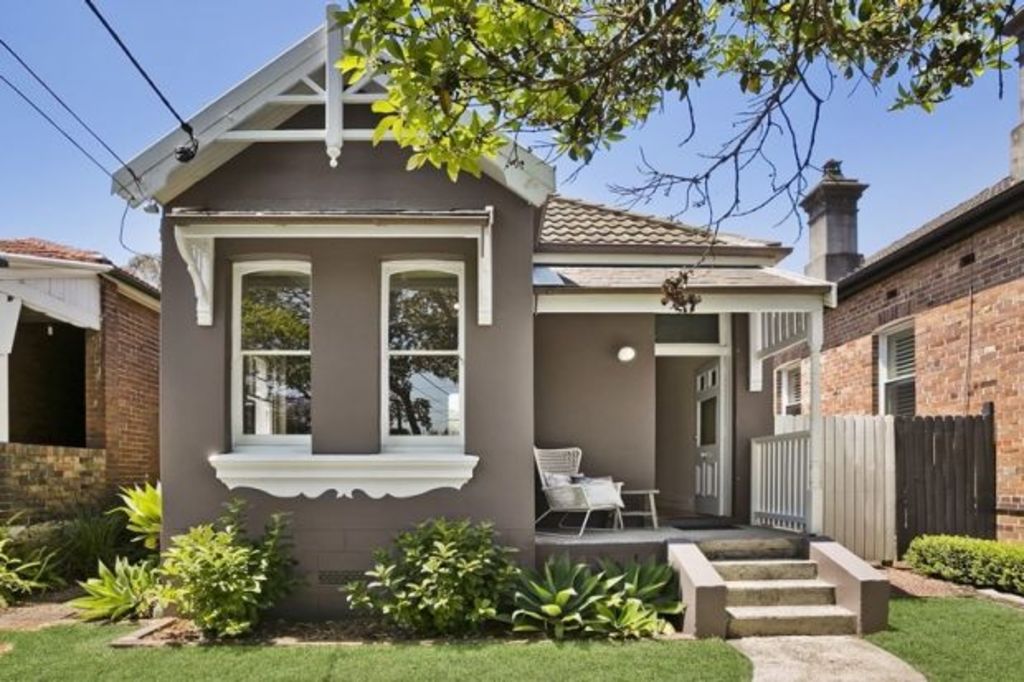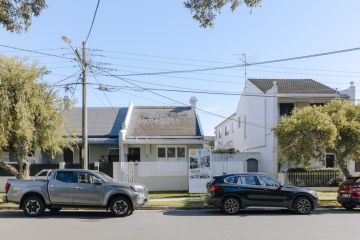How to keep your property new year's resolutions for 2018

New year’s resolutions are notoriously difficult to keep. In fact, research suggests only 9 per cent of people actually keep theirs.
When it comes to property, clearly defined goals, such as saving for a deposit or buying a first home, are easy to set. With planning and perseverance, you’re more likely to achieve them in 2018.
1. Saving for a house deposit
Managing the cost of living and still putting aside a portion of your pay each month can be incredibly challenging. If buying a home is one of your goals, then saving for a deposit is likely to be your biggest obstacle.
According to the managing director of Property Planning Australia, David Johnston, having a money management system is fundamental to taking on any kind of debt.
“If you’re striving to buy property, you really need to set goals around your spending habits and your saving habits,” he said.
Mr Johnston suggests dividing income into clear “buckets”, with separate accounts for savings, fixed expenses such as bills, and everyday expenses including groceries and dining out. Separating your monthly income makes it more obvious when you exceed your monthly budgets.

A good money management system is the key to saving for a house deposit. Photo: Jim Rice
“If you’ve gone over the figure, you need to draw money from somewhere,” he said, adding that this feedback is critical to understanding the areas where you are spending too much so you can adjust accordingly.
- Related: Different ways to save for your first home deposit
- Related: Seven mistakes first-home buyers make
- Related: The key to building a multi-property investment portfolio
Cutting back on dining out and takeaway meals, and minimising alcohol consumption can be easy wins, but savers can also adjust the other side of the equation.
“Apart from adjusting spending habits, the main way people can improve their cash flow is by growing their personal income,” said Mr Johnston. That means actively trying to increase your monthly pay through a raise or promotion.
2. Buying your first home
The last few years of unprecedented house price growth, particular in Sydney and Melbourne, has left some first-home buyers struggling to find their ideal property.
But with measures to cool investor activity starting to take effect, first-home buyers may be presented with a golden opportunity to get on the property ladder in 2018.
Sydney buyers’ agent and associate director of RPM Property, Kyah Johansson, said buyers who have been disappointed throughout the past year may need to change their tactics heading into 2018.
“If people haven’t found their dream home this year, they might need to adjust their expectations,” she said.

Large blocks in inner-city areas command premium prices. Photo: Supplied
Ms Johannson said buyers needed to be realistic when researching an area to get a clear idea of what they can afford.
“Land size is a big thing that a lot of people don’t take into consideration when looking at comparable sales,” she said, explaining that buyers can be fooled into thinking they can afford a property based on the size or condition of the house, rather than the block itself.
Ms Johannson believes understanding the motivation of vendors can also give buyers a realistic idea of a property’s value. “If the property has just been fully renovated, then you know that cost is going to factor into the vendor’s expectation,” she said.
3. Purchasing an investment property
Buyers who want to get on the property ladder, but find themselves priced out of the suburb where they rent, may benefit from “rentvesting” – purchasing an investment property where they can afford so they can build equity while renting where they want to live.
“Some people have this perception that they need to either buy their dream home right now, or never at all, but there are other options,” Ms Johannson said.
She explained rentvesting could allow buyers to put their money to work, building wealth in a shorter timeframe than saving alone. The equity in an investment property could then be used to help fund an owner-occupied purchase further down the track.
“Property prices are going up but wages aren’t. You could spend another five years saving another $50,000, or you could use your savings as a deposit for an investment,” she said.

Rentvesting allows you to get on the property ladder while living where you want. Photo: Kayleigh Harrington
Purchasing an investment property may actually be more straightforward than buying a “forever home”.
“If it’s investment that you’re never going to live in, it’s an unemotional decision,” said Ms Johannson. “It’s about facts.”
Mr Johnston said investors need to be methodical in their approach to determining the property they buy. “If you’re looking to invest, ask yourself, ‘What cashflow am I happy to place towards that property?’ ” he said.
“The other thing to ask yourself is, ‘How much of a buffer of cash do I want to have up my sleeve after I purchase the property?’ “
Mr Johnston said this process allows buyers to calculate their budget, which determines the capital city or regional markets that are attainable.
“You want to be buying at a price that is around the sweet spot where most people can afford,” he said. “Not too far beneath the median that you’re getting an overly compromised property, but not too far above that most people can’t afford it.”
Properties in this “sweet spot” in areas with good infrastructure and population growth are likely to see continued demand, leading to strong capital growth.
We recommend
We thought you might like
States
Capital Cities
Capital Cities - Rentals
Popular Areas
Allhomes
More
- © 2025, CoStar Group Inc.







